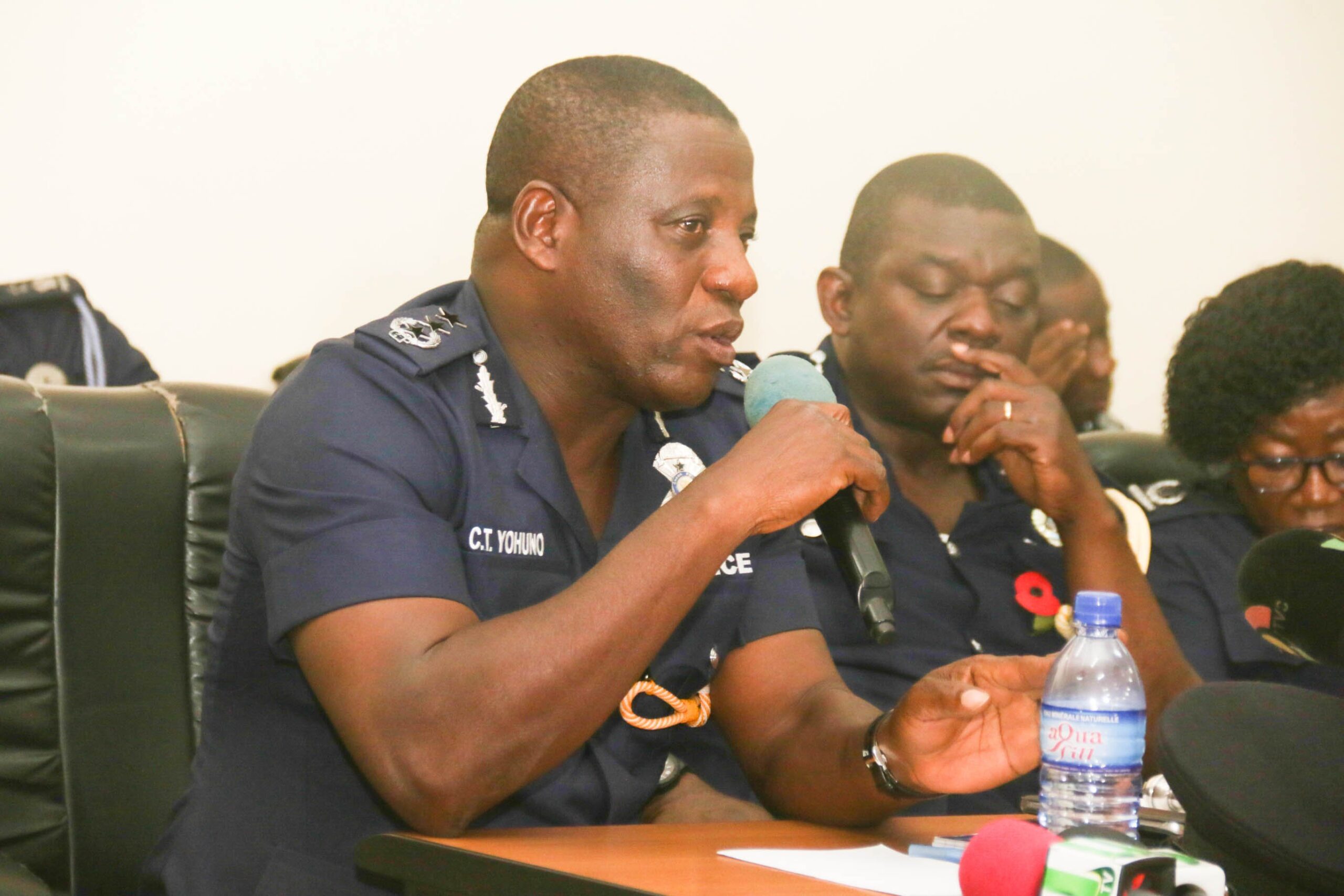IGP Yohuno’s Revival of Regional Police Public Affairs Units: A Strategic Move Towards Transparency and Public Trust
By reactivating the regional police public affairs units, IGP Yohuno is positioning the Ghana Police Service as a more responsive and people-centered institution.
- Advertisement -
In an era where public trust in law enforcement is constantly tested, the decision by the Inspector-General of Police (IGP), Christian Tetteh Yohuno, to reactivate all regional police command public affairs units is both timely and commendable. This strategic move is a testament to his commitment to fostering transparency, accountability, and effective communication between the Ghana Police Service and the citizenry.
For years, police communication had been overly centralized at the Police Headquarters in Accra, leading to significant challenges in information dissemination. This bottleneck often resulted in delays in relaying critical updates to the public, creating a vacuum where misinformation and speculation could thrive. The media, as a critical partner in governance and law enforcement, has often found itself handicapped due to limited access to timely and credible police information. By decentralizing public affairs operations, the IGP is not only strengthening police-media relations but also ensuring that the public remains well-informed and engaged.
- Advertisement -
The Importance of Decentralized Police Communication
- Advertisement -
Globally, best practices in law enforcement emphasize open communication channels between security agencies and the public. Modern policing is no longer just about crime control; it is about fostering relationships, building trust, and ensuring that communities see law enforcement agencies as allies rather than adversaries.
By reactivating the regional police public affairs units, IGP Yohuno is positioning the Ghana Police Service as a more responsive and people-centered institution. This initiative has several benefits, including:
- Timely and Accurate Information Dissemination: Regional police units can now provide real-time updates on security matters, preventing the spread of false information and promoting public confidence in the police service.
- Strengthening Media Relations: The media plays a pivotal role in shaping public perceptions of security agencies. With improved access to verified information from regional public affairs officers, journalists can report more accurately and responsibly, thereby reducing sensationalism and misinformation.
- Enhanced Community Engagement: When police officers communicate directly with the communities they serve, trust and cooperation improve. This fosters a culture where civilians feel more comfortable reporting crimes and collaborating with law enforcement to ensure public safety.
- Crisis Management and Public Reassurance: During emergencies, clear and swift communication from local police authorities can prevent panic and ensure coordinated responses to security threats.
The Role of the Media in Supporting This Initiative
It is important, however, to note that the success of this initiative will largely depend on how effectively both the police and the media collaborate. While the media must take advantage of this opportunity to engage more meaningfully with the police service, journalists also have a responsibility to uphold ethical reporting standards. Sensationalism and misinformation have no place in responsible journalism, especially when dealing with security-related issues.
It is imperative for media professionals to:
- Verify Information Before Publication: Ensuring that reports are accurate and fact-based will prevent unnecessary panic and confusion.
- Engage in Constructive Journalism: The focus should be on reporting news that educates and informs rather than inciting fear and distrust.
- Build Relationships with Regional Public Affairs Officers: This will create a more seamless flow of information and foster mutual respect between the police and the media.
- Advertisement -
As a media consultant and security analyst, I strongly encourage ongoing dialogue between the Ghana Police Service and the media fraternity. Regular engagements, training sessions, and workshops should be organized to equip journalists with the necessary skills to report on security issues accurately and responsibly.
Commendation for IGP Christian Tetteh Yohuno
IGP Yohuno’s leadership since assuming office has demonstrated a clear vision for a more accountable and professional police service. His proactive approach in revamping the public affairs units is a clear indication of his understanding of modern policing dynamics. This initiative not only reinforces the police service’s commitment to transparency but also aligns with Ghana’s democratic principles of openness and public engagement.
However, while this development is laudable, there are a few critical recommendations that could further strengthen this initiative:
- Capacity Building for Public Affairs Officers: Training and equipping the officers in these regional units with modern communication tools and techniques will ensure efficiency in their roles.
- Standardized Communication Protocols: Establishing clear guidelines on how and when information should be disseminated will prevent inconsistencies and miscommunication.
- Regular Stakeholder Engagements: Frequent interactions with media professionals, civil society organizations, and community leaders will help identify gaps and improve collaboration.
- Integration of Digital Media Platforms: In today’s digital age, leveraging social media and other online platforms for real-time information sharing will enhance public engagement and information accessibility.
Conclusion
IGP Christian Tetteh Yohuno deserves high commendation for this bold and forward-thinking initiative. By reviving the regional public affairs units, he is not only reinforcing the core principles of community policing but also ensuring that the police service remains transparent, accountable, and accessible to the public. This move has the potential to reshape public perception of the police and significantly improve security reporting in Ghana.
Going forward, it is essential that both the police service and the media work together in good faith to maximize the benefits of this initiative. With strategic implementation, continued collaboration, and a commitment to ethical reporting, Ghana can set a new standard in police-media relations that other nations can emulate.
By Jeorge Wilson Kingson
The writer is the Executive Secretary of the Private Newspapers and Online News Publishers Association of Ghana (PRINPAG), a Media Consultant, and a Security and Intelligence Analyst.
- Advertisement -


